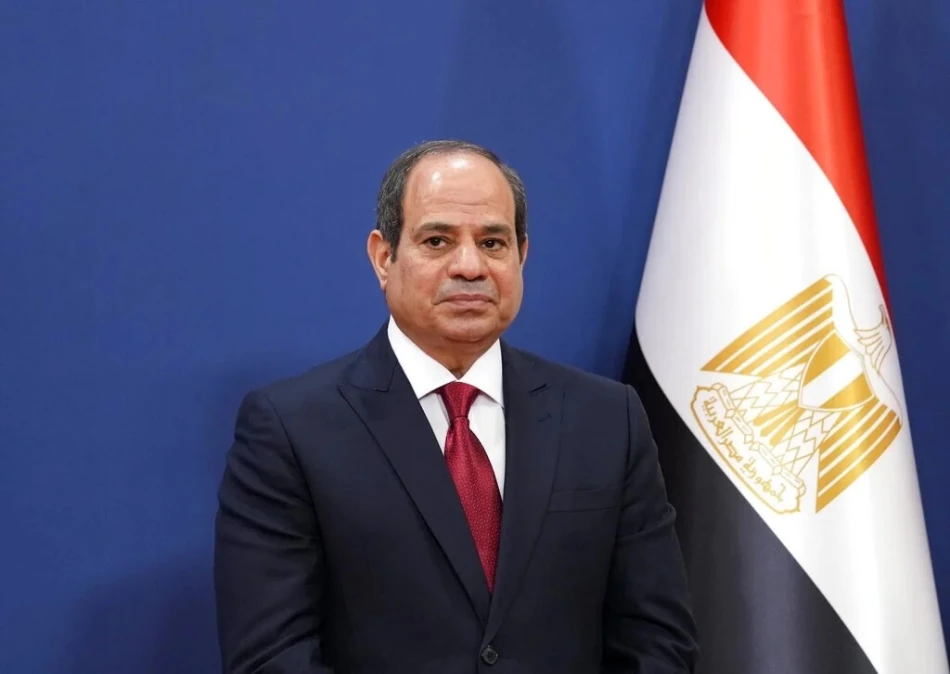
Egypt's Sisi Condemns Systematic Genocide Against Palestinian Cause in Gaza
Egypt's Sisi Accuses Israel of "Systematic Genocide" in Gaza, Defends Cairo's Aid Role
Egyptian President Abdel Fattah el-Sisi launched a sharp rebuke against Israel's Gaza offensive, describing it as "systematic genocide" aimed at eliminating the Palestinian cause entirely. Speaking alongside Vietnamese President To Lam in Cairo, Sisi positioned Egypt as Gaza's primary lifeline while deflecting criticism of his country's border policies—a stance that highlights the delicate balancing act facing Arab leaders amid mounting regional pressure.
Strong Words Against International Inaction
Sisi's unusually direct language reflects growing frustration among Arab governments over Western support for Israel's military campaign. "History will hold some countries accountable for their position on what is happening in Gaza," he declared, a clear reference to the United States and European nations that have backed Israel's right to self-defense.
This rhetoric marks a significant escalation from Egypt's typically measured diplomatic tone. The president's use of the term "systematic genocide" aligns Egypt more closely with South Africa's case at the International Court of Justice, signaling that even traditionally pragmatic Arab allies are hardening their positions as civilian casualties mount.
The Rafah Crossing Controversy
Central to Sisi's defense was the status of the Rafah border crossing, Gaza's only gateway not controlled by Israel. The Egyptian leader pushed back against criticism that Egypt has contributed to Gaza's isolation, insisting that "Rafah crossing was not closed—it was destroyed four times."
Egypt's Infrastructure Investment
Sisi revealed that Egypt has repeatedly rebuilt its side of the crossing, with over 5,000 aid trucks currently ready to enter Gaza. "We worked to repair the Rafah crossing from the Egyptian side," he emphasized, placing responsibility for aid bottlenecks squarely on Israeli control of the crossing's Gaza side.
This narrative serves Egypt's broader strategy of maintaining its role as a regional mediator while avoiding direct confrontation with Israel. By highlighting its reconstruction efforts, Cairo seeks to counter accusations from both Palestinian supporters and Israeli officials who have criticized Egyptian border policies.
Regional Implications and Historical Context
Egypt's position reflects the complex legacy of the 1979 Camp David Accords, which secured peace with Israel but often puts Cairo at odds with Palestinian aspirations. Sisi's firm rejection of Palestinian displacement—"We will not participate in displacing the Palestinian people"—addresses longstanding fears that Israel seeks to push Gaza's population into Egypt's Sinai Peninsula.
Balancing Act Under Pressure
The Egyptian president's comments come as his government faces economic crisis and relies heavily on Gulf and Western financial support. Yet domestic pressure and regional solidarity appear to be pushing Sisi toward more confrontational rhetoric, even as Egypt maintains security cooperation with Israel.
His claim that Egypt has provided "more than 70% of aid to Gaza in recent months" positions the country as Palestinians' primary supporter, potentially strengthening Egypt's hand in future ceasefire negotiations and post-conflict reconstruction efforts.
Strategic Messaging Amid Crisis
Sisi's assertion that critics of Egypt's aid efforts are "bankrupt" suggests growing sensitivity to accusations that Cairo has been complicit in Gaza's blockade. By framing Egypt as Gaza's lifeline while Israel controls access, the president seeks to reshape the narrative around his country's role in the crisis.
This messaging strategy serves multiple audiences: reassuring domestic critics of Egypt's Palestinian solidarity, positioning Cairo as indispensable to any Gaza solution, and deflecting international pressure for more aggressive action against Israel. Whether this approach can sustain Egypt's delicate regional balancing act will depend largely on how long the Gaza crisis continues and whether diplomatic solutions emerge.
Most Viewed News

 Sara Khaled
Sara Khaled






